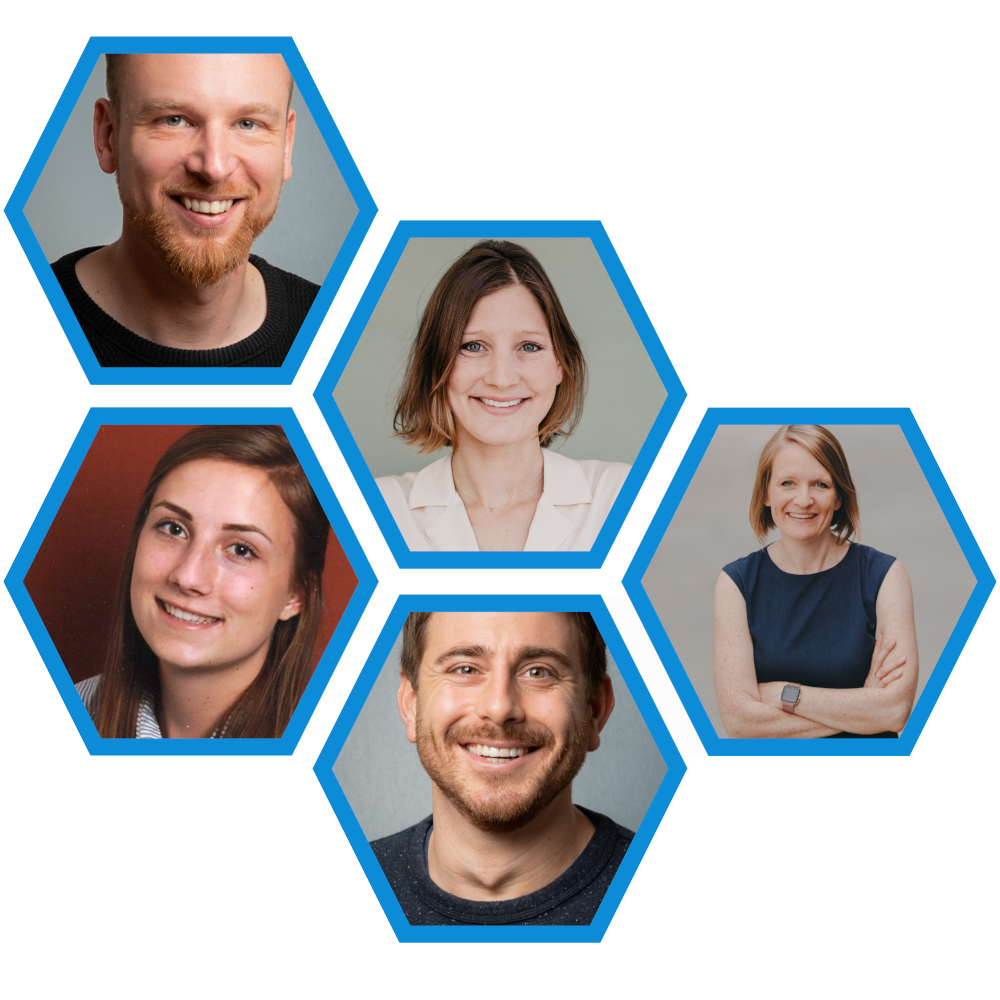
Medical Innovations Incubator
Home of 4C - Enabling Life Science Innovations
Our focus: medical innovations
We promote medical innovations. Since 2014, we have been pursuing this major goal together with our non-profit parent company, the Stiftung für Medizininnovationen (Foundation for Medical Innovations). In doing so, we are always aware of the challenges that one faces in the healthcare industry. They form the foundation of our daily activities when collaborating with startups and already established corporates with innovative medical devices and in vitro diagnostics.
Our experience shows: Especially for founders, knowledge and skills of the so-called Entrepreneurship Essentials and common methods, such as Business Model Canvas, Design Thinking or Lean Launchpad, are essential, but in order to become successful, medtech startups need additional know-how. Similar challenges are faced by already established corporates, which want to bring an innovation outside the current strategic focus to the market, as well as corporates that want to develop a new business area in this industry.
In recent years, we have therefore developed our approach: Through the 4C concept and the Regulatory Thinking® method we enable medical innovations! This approach serves as the starting point for our diverse offerings for startups and corporates, but also for the cooperation with investors, academia, and municipalities.

4C Concept
Regulatory Thinking®
Enabling
Commercialization, Certification, Clinical Studies und Copyright – these 4Cs impact the business model of any medtech company.
Behind each of the Cs are requirements from a wide variety of stakeholders. Particularly important are the requirements of the regulated healthcare industry, which includes laws, standards and the relevant authorities. At the same time, the Cs are mutually dependent, which increases their complexity even further. We are convinced: Extensive knowledge in the 4Cs and the ability to link their content, challenges and opportunities are the key to a holistic business model that encompasses and realistically evaluates all relevant scenarios. A business model that works for medical innovations.
The easiest way to answer this question is to give an example:
The intended use of a medical device or an in vitro diagnostic product not only determines the risk class of this product and thus the applicable regulatory requirements from MDR or IVDR (C2). It also influences the corresponding market segment and the possibilities for reimbursement (C1). From the intended purpose is derived which endpoints must be proven on the basis of clinical data in order to obtain CE marking or reimbursement (C3), and can also indicate which data protection aspects must be taken into account in the development and use of the product (C4).
So, what is Regulatory Thinking®?
- It is a MINDSET through which the 4Cs and their requirements are understood in an interconnected way.
- It is a METHODE that makes this interconnection possible and systematizes it.
- It is a RELIEF as two seemingly incompatible worlds – business model and regulation – merge.
- It is a COMPETITVE ADVANTAGE because regulation is considered from the very beginning in the business model scenarios, which saves time, costs, and resources.
Regulatory Thinking® was developed under the lead of the MII together with partners from research, industry and the startup ecosystem, who have joined forces as a consortium. The consortium bundles the knowledge, skills and experience around Regulatory Thinking® of all its members. The collaboration with the consortium and its experts gives us enormous opportunities to support medical innovations in an even more targeted and focused way.
Our goal is to enable medical innovations. But what does that mean for us?
If you look up the meaning of the word “to enable” in the Cambridge Dictionary, we can perfectly apply its definition to our daily activities:

to make someone or something …
founders and their medical innovations
… able to do something …
build a successful and sustainable business model, develop a high quality product and set up an efficient company structure
… by providing whatever is necessary …
knowledge in the 4Cs and guidance on how to transfer it into implementation
… to achieve that aim.
becoming a market-ready company that improves the healthcare market
Our team of enablers supports you in taking things into your own hands. True to the motto: Helping you to help yourself. All our services – in the form of consulting, workshops, reviews and template packages – have therefore been developed in a didactically valuable way and are adaptable to the individual needs, experiences and resources of each team.
Our team of enablers supports you in taking things into your own hands. True to the motto: Helping you to help yourself.

All our services – in the form of consulting, workshops, reviews and template packages – have therefore been developed in a didactically valuable way and are adaptable to the individual needs, experiences and resources of each team.
